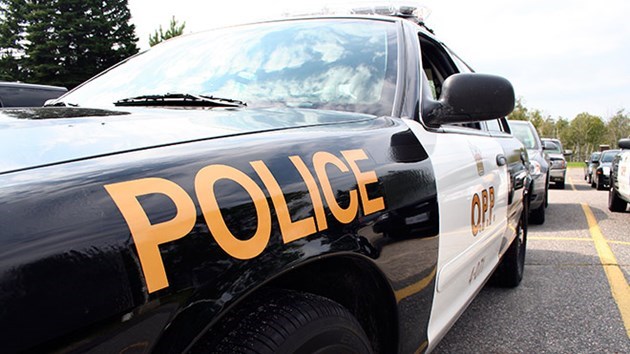The COVID-19 pandemic has led to some interesting changes in the world of policing, and that was evident, to an extent, in a recent report to the Orillia Police Services Board.
Insp. Brent Robitaille, interim commander of Orillia OPP, provided a statistical update to the board. He noted calls for service in March and April were down 10 per cent from the same time in 2019.
“Across the province, we had lots of officers quarantined, so we reduced the number of calls we were attending,” he said, noting many officers were away with their kids on March break and had to quarantine upon their return. “Orillia was lucky. We didn’t see a large number of officers who were quarantined.”
However, it was still important for police to urge members of the public to file a report over the phone or by using the OPP’s online reporting tool, he said, while still encouraging them to call 911 in an emergency.
In March and April, Orillia OPP arrested 23 people who faced a combined 109 drug- and firearm-related charges.
“We weren’t dealing with a lot of the minor calls, but we were able to direct resources into those larger drug-impact scenarios that we had and were able to make, I hope, an impact on that community,” Robitaille told the board.
He later elaborated in an interview with OrilliaMatters, saying some OPP members from special units that weren’t as busy as a result of the pandemic were deployed to the detachment to help with front-line policing.
That allowed existing Orillia OPP members to zero in on the drug scene. Cocaine, methamphetamine and fentanyl were the most common drugs seized in March and April.
The province ordered the cancellation of vacation for everyone in the public service, and that lasted from the last two weeks of March until the end of April. That meant there were more officers on the job, which is also a factor in the number of drug charges.
Policing during the pandemic “has been a real eye-opening experience,” Robitaille said.
There have been fewer vehicles on the roads and a noticeable drop in late-night calls. Pre-pandemic, it wasn’t uncommon for police to respond to fights or other disturbances when bars closed.
“We’re not experiencing the types of calls at night that we’ve been accustomed to,” Robitaille said.
Mental health calls have also gone up during the pandemic. While those calls do not have their own category in the statistical report that is presented regularly to the police services board, there has been an obvious increase, Robitaille said.
“There are more people suffering from addiction and maybe they don’t think they can access the resources (during the pandemic),” he said.
The Crisis Outreach and Support Team (COAST) is a partnership that sees officers work with Canadian Mental Health Association (CMHA) professionals when dealing with a mental health call. The officers and mental health workers typically work together out of the Orillia OPP building, but that hasn’t been the case during the pandemic.
“That was really missed by our community mobilization team,” Robitaille said, but added CMHA workers could still be called in. “We rely on them a lot, not just helping us deal with calls, but trying to find these people help before (police get involved).”
